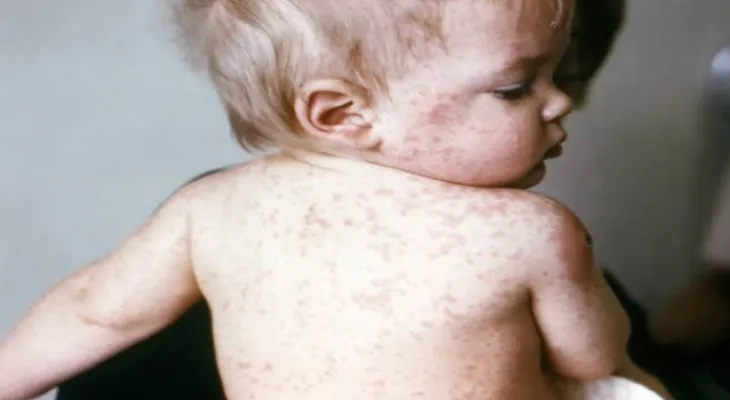Search here
Newspaper
Search here

Arab Canada News
News

Published: March 2, 2024
There are early signs that measles - one of the most contagious viruses in the world - may be quietly spreading within parts of Canada, as health officials prepare for more cases coming from abroad during the March holiday travel season.
There are now at least nine confirmed cases in the country for 2024, a two-month tally that is not far from the dozens of cases reported across Canada for the entire year of 2023.
The two most recent cases identified in Quebec and Ontario were not linked to previous travel and had no contact with any known measles cases, suggesting that individuals may have contracted the infection within their communities.
Public Health Laval announced on Thursday that an infected person had been isolated at home since February 26 - and had previously visited a school, a small store, and a medical clinic
all at CHU Sainte-Justine and Laval suburb hospital in Montreal, and officials said the person was unvaccinated and had not traveled.
Luc Boileau, the provincial director of public health, said on Friday that this infection is one of three known cases in Quebec, with many suspected infections still under investigation.
Boileau warned, “We believe this is the beginning of community transmission.”
The Quebec case follows another infection reported this week in the York region, a municipality north of Toronto, which was not related to travel, where health officials say a man in his thirties contracted the infection from an unknown source.
Dr. Barry Pake, the medical officer of health for the York region, noted that the unique aspect of this case is that it has no travel history or any exposure history to the virus.
Pakes explained that the man was vaccinated and had a mild illness, and he likely contracted the virus within the community. Before his diagnosis, the man spent time in various parts of the Greater Toronto Area, including a restaurant in Mississauga, and a hospital in Vaughan Woodbridge.
There is another recent case, an unvaccinated child in the town of Brant, Ontario, who was hospitalized after contracting measles during a trip to Europe, and more than 200 people may have been exposed in different locations, including Pearson International Airport near Toronto - although health officials told local media that no other cases have been reported.
Many medical experts agree that any measles spread in Canada is likely to fizzle out; however, outbreaks remain possible if the infection hits communities where vaccination rates are
lower.
Dr. Jesse Papenberg, a pediatric infectious diseases specialist at Montreal Children’s Hospital, said that vaccination rates remain high enough to be able to prevent transmission.
He added, however, that there may be pockets where vaccine coverage rates are not sufficient to stop secondary spread when there is an imported case.
National data also show decreasing overall vaccination rates, while a new study indicates that more Canadian parents are concerned about giving their children routine doses - despite the long-standing medical consensus that vaccines are effective and safe against a highly contagious virus
Measles is believed to be one of the most infectious health threats, spreading easily through the air, transmitted even before symptoms appear on people, and can remain indoors for up to two hours.
The World Health Organization notes that one person infected with measles can infect nine out of every 10 people who have not been vaccinated.
It also has a long incubation period, typically between 10 and 14 days - and in some cases, can lead to life-threatening complications, including pneumonia, brain swelling, or death.
Comments